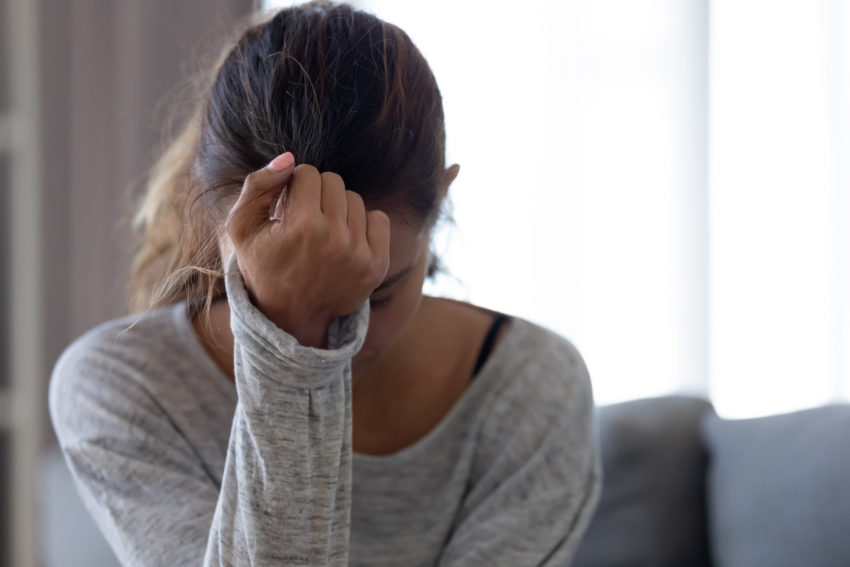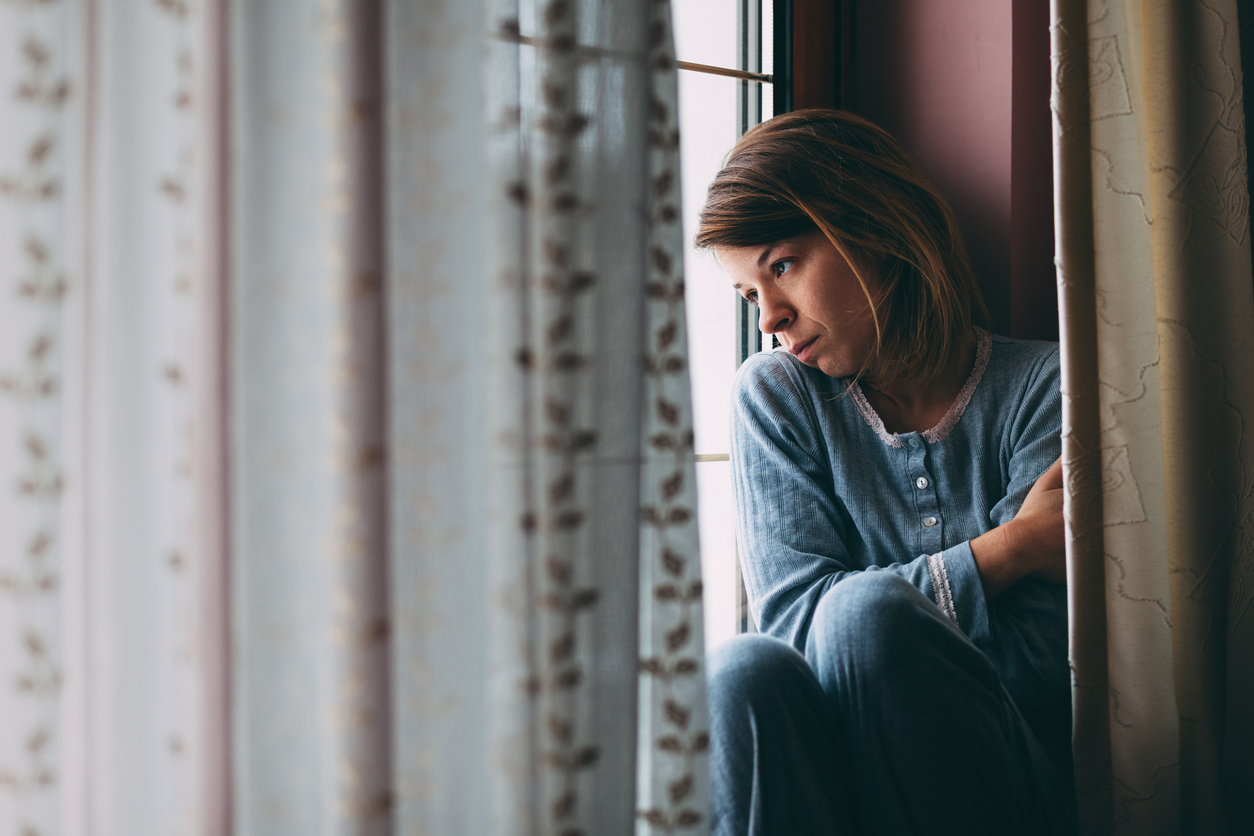
Share On Social!
Many U.S. homes are not the safe havens we may think.
In fact, with families locked down to slow COVID-19, police say domestic violence cases have risen up to 35% in recent days, NBC reports.
Local and state leaders need to address the immediate needs of these victims.
They also need to think about long-term solutions to reduce disparities in income and wealth accumulation, which COVID-19 is exacerbating, particularly among Latinas.
“Women — and it is predominantly women who are victimized — are confined to isolated homes with abusive partners whose coercive and physically violent tendencies are enabled and further inflamed by economic stressors [due to coronavirus],” according to Natasha Lennard with The Intercept.
If you or someone you know needs help, call the National Domestic Violence Hotline for free (English and Spanish): 1-800-799-7233 or TTY 1−800−787−3224.
The U.S. Has a Domestic Violence Problem
More than one in three Latina women (34.4%) reported ever being a victim of an intimate partner’s sexual or physical violence or stalking, according to a 2017 CDC report.
This rate is similar to the rate of women overall (37.3%).
Nationally, 23.2% of women and 13.9% of men have experienced severe physical violence by an intimate partner in their lifetime.
Several issues impact the actions of abused Latinas.
These include the cultural role of wife and mother, religious beliefs, the concept of the ideal woman (“marianismo”), and lack of Spanish-language support and resources.
“Studies also show that Hispanic/Latinas are more concentrated in low-paying, semiskilled occupations than the overall workforce,” according to the Women of Color Network. “Therefore, limited financial resources create substantial barriers for women trying to leave the abuse or trying to obtain legal assistance, housing, and childcare.”
Domestic Violence Is Often Not Reported
Roughly half of domestic abuse cases go unreported.
For example, Latino immigrants may be less likely to report domestic abuse and seek help from formal agencies due to fear of deportation.
“If they leave their intimate partner, sometimes partners here have said, ‘Well, I have connections in the country of origin and can hurt your family if you leave me,’ or ‘I will deport you. I will call the police. They’ll take your kids away if you leave me,'” said Paula Gomez Stordy of the National Latin@ Network for Healthy Families and Communities, according to US News.
Two people may both report having experienced physical violence by an intimate partner.
But type, severity, and frequency of the experience could lead to substantially different short- and long-terms impacts. These include missing school or work, anxiety, depression, and mental health conditions. They also include physical issues: injury, irritable bowel syndrome, frequent headaches, chronic pain, and difficulty sleeping.
COVID-19 Complicates Efforts to Prevent Domestic Violence
Comprehensive strategies to prevent sexual and physical violence need to focus on preventing perpetration in the first place. Then provide appropriate services, resources, and other supports for victims to ensure healing and prevent further victimization.

Unfortunately, prevention and treatment are particularly difficult as families isolate due to COVID-19.
Already underfunded support programs and services are being overwhelmed, and even cut.
“Twenty-one YWCA associations have told the organization’s national headquarters that they predict a drop in funding for their domestic violence and sexual assault services, and a dozen anticipate closing a program or facility for abuse victims,” according to NBC News.
Moreover, preventing further victimization is particularly difficult as COVID-19 highlights financial inequities, particularly among Latinos.
Before the pandemic, Latinas were paid 47% less than white men on average, making them more vulnerable to social and economic emergencies.
“The combination of economic and social stresses brought on by the pandemic, as well as restrictions on movement, have dramatically increased the numbers of women and girls facing abuse, in almost all countries,” according to the United Nations Secretary General, António Guterres.
COVID-19 Is Worsening the Domestic Violence Problem, According to Crisis Hotlines
U.S. cities have experienced a spike in crisis support lines and suicide prevention services since the coronavirus outbreak.
Examples include:
- The national Crisis Text Line (1-877-235-4525) handled 6,000 text conversations last week. That is twice the normal volume, said spokeswoman Ashley Womble, according to The Boston Globe.
- FirstLink, a North Dakota company that answers the 211 helplines and National Suicide Prevention Hotline (1-800-273-8255), says call volume to some call centers are up 300% nationally, according to Valley News Live.
- In Portland, Oregon, all 911 calls dropped 10%. But suicide-related 911 calls rose 23% between March 12 and 22, 2020, compared with the prior 10 days before the city declared an emergency, according to The Oregonian.
Isolation severs support networks, making it more difficult for victims to get help or escape.
“We are especially concerned that survivors will be unable to reach out for help due to their abusive partner monitoring their behaviors while they are in isolation,” said Katie Ray-Jones, CEO of the National Domestic Violence Hotline, according to NBC News.
COVID-19 Is Worsening the Domestic Violence Problem, According to Police
NBC News got data from 22 U.S. law enforcement agencies on domestic violence calls. The following 18 said they saw a rise in domestic violence reports, up to 35%, in March compared to February:
- Houston
- Phoenix
- Charlotte-Mecklenburg
- Boston
- Milwaukee
- Seattle
- San Antonio
- Salt Lake City
- Utah County, Utah
- Fresno County, California
- Montgomery County, Texas
- East Baton Rouge Parish, Louisiana
- Buffalo, New York
- Sparks, Nevada
- Portland, Oregon
- Nassau County, New York
- Cherokee County, South Carolina
- Charleston, South Carolina
It is unclear how many calls and reports Latinos made.
In San Antonio (64.2% Latino), family violence calls were up 18% compared to the same time last year, SA Current reports.
“If we don’t start doing something now, as communities, those are the outcomes we can expect,” Gloria Terry, CEO of the Texas Council on Family Violence, told the Current.
Recommendations to Reduce Domestic Violence
U.S. lawmakers are pushing for additional funding for the Violence Against Women Act (VAWA) in the next coronavirus response package.
The UN has issued domestic violence reduction recommendations:
- Increase investment in online services and civil society organizations,
- Make sure judicial systems continue to prosecute abusers,
- Set up emergency warning systems in pharmacies and groceries,
- Declare shelters as essential services,
- Create safe ways for women to seek support, without alerting their abusers,
- Avoid releasing prisoners convicted of violence against women in any form,
- Scale up public awareness campaigns, particularly those targeted at men and boys.
“I urge all governments to put women’s safety first as they respond to the pandemic,” tweeted António Guterres of the UN on April 5, 2020.
The National Domestic Violence Hotline suggests practicing self-care, reaching out for help, and creating a safety plan. A safety plan is a personalized plan. It has ways to remain safe while in a relationship, planning to leave, or after you leave.
“Because there may be limited shelter availability due to COVID-19, consider alternatives such as staying with family or friends, staying in motels, or sleeping in your vehicle,” according to the Hotline’s website. “Be extra mindful of good hygiene practices if you’re leaving as well. Wash your hands regularly, avoid touching your face, minimize contact with surfaces that other people have had contact with, etc.”
San Francisco (15.2% Latino) has made texting 911 available for victims who can’t make a phone call. They also secured 20 furnished apartments for survivors.
At La Clínica de La Raza, an Oakland-based community health center, doctors were already routinely screening patients for social needs, including domestic abuse, and coordinators were already helping survivors navigate counseling, housing, and legal services.
However, advocates say we need more to address social and economic inequities among women.
“[We need] longer-term responses offering social and economic infrastructure and services, so that women and children are not dependent on the patriarchal household structure for survival,” said Lennard.
Learn more about Latino health equity amid the coronavirus!
By The Numbers
142
Percent
Expected rise in Latino cancer cases in coming years



